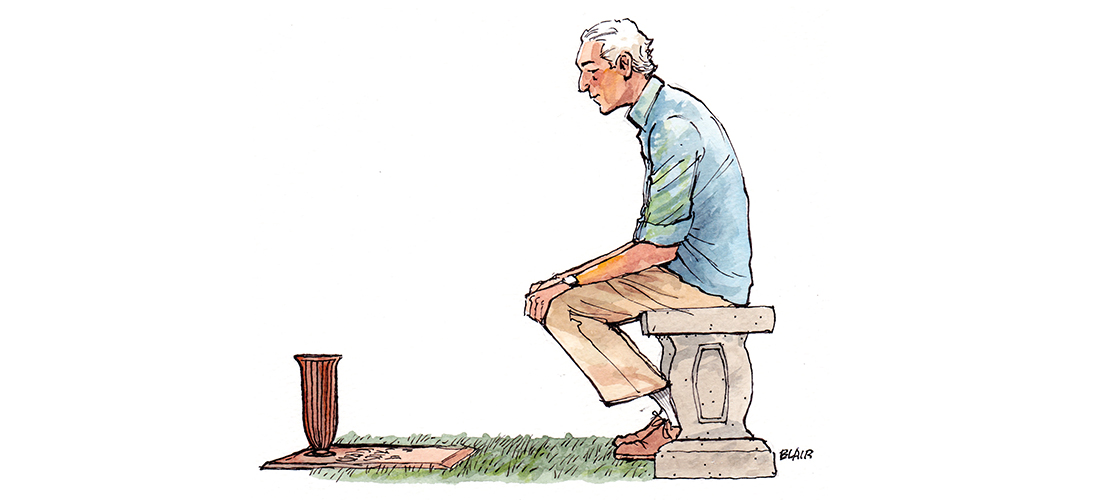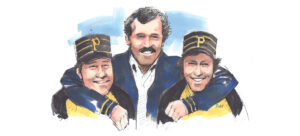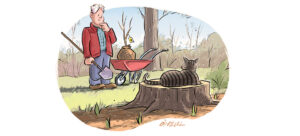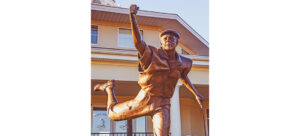
Technically speaking, it’s a different world up there
By Clyde Edgerton
My parents were born in 1902 and 1904 into homes without electricity. That kind of describes a starting point regarding my relationship to modern technology.
I remember an old Model T truck we kept in our backyard when I was a child. To start the engine, you inserted a crank into a hole below the radiator in the front grill. Then with the ignition turned on (after you’d primed the engine with the choke) you turned the crank until the engine started.
Our truck was equipped with a wooden trough across the back end of the truck bed — where the tailgate goes. At the end of the trough was a circular saw. You could jack up the back of the truck, place a saw-belt around a tire or axle, the belt would turn the saw, and you could cut firewood from logs.
My grandfather (born 1870) used to cutting wood with an ax, thought the contraption was unnecessary. Once, when he saw a neighbor cooking on a grill, he said, “We used to cook inside and go to the bathroom outside. Now they’re turning that around.”
After automobile electric windows, air conditioning and automatic transmissions came along in the ’40s and ’50s, my father and mother would have nothing to do with them (until the ’70s).
Now, on many days, I think about sitting by my father’s grave in Durham and having a conversation with him. He died in 1980.
“Daddy, how’s it going?” I would say.
“Nothing much happening on my end. How’s it going up there?”
“Right much happening on the technology end,” I’d say.
“I figured that might be coming. What about on the morality end?”
“Not much there . . . that seems to stay kind of constant. But on the technology part, I was just thinking about how when you bought a car for the family you always wanted the windows that were rolled up with a handle, no air conditioning and a straight transmission.”
“Oh yeah, I didn’t like the extras. But go ahead and feed me some new facts about technology, maybe politics, economics.”
“Let’s stay with technology,” I’d say. “No, wait a minute. On the politics: Do you remember Garland Fushee? The man who lived next to Tee Rawlings, service station?”
“Of course. How could anybody forget Garland Fushee?”
“Well, think about Garland being president,” I’d say.
“Garland Fushee?”
“Yes sir. Remember about how much Garland loved golf, and how much he would have loved to tweet about people he didn’t like?”
“Garland wasn’t a bird,” Daddy would say.
“Oh, that’s right. Sorry. Tweeting is something people do now. It’s connected in a roundabout way to technology. Connected to advances since the computer.”
“Computer? I remember that computer on campus at Chapel Hill back in 1971. Remember when we went in that building for a drink of water and you showed it to me. It filled up a room.”
“I do remember that. By the way, here in Wilmington, we buy water now — those who can afford it.”
“You buy water? What in the world?” Daddy would say.
“Long story,” I’d say. “It gets us over into economics, always connected to politics. Turns out our water problems are good for business.”
“How so?”
“Bottled-water business is looking up. And an upriver business releases chemicals into the water and a bunch of downriver businesses benefit: funeral homes, cremation services, pharmacies, hospitals, tombstone makers, florists.”
“Oh, I see. Hmmmm. Sounds like they’re finally backing off on regulations.”
“That’s the idea.”
“All in all, looks like I may have checked out at about the right time.”
“You could say that, Daddy. We’ll chat again in a few years. See how things are going.”
“Let’s do that, Son. See you then.”
And then I’d hop in my car and drive it back to Wilmington. In less than a decade it may be driving me. A lot of technology in a couple of lifetimes. PS
Clyde Edgerton is the author of 10 novels, a memoir and most recently, Papadaddy’s Book for New Fathers. He is the Thomas S. Kenan III Distinguished Professor of Creative Writing at UNCW.





